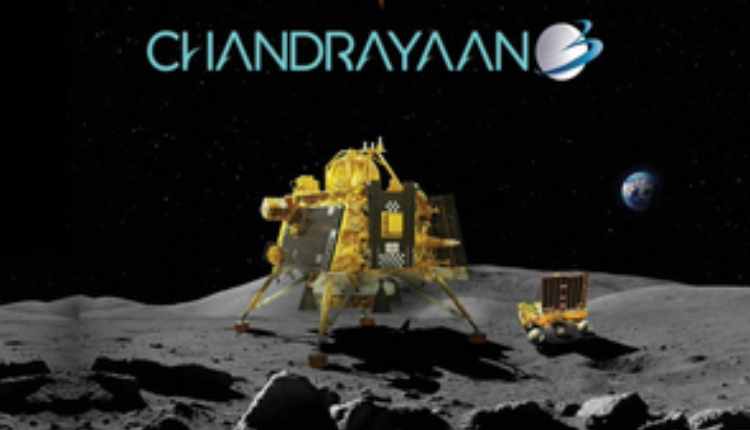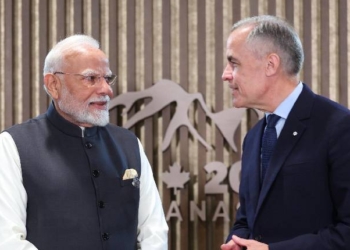Mumbai: India is literally ‘moonstruck’ as the much-monitored Chandrayaan-3 prepares to touch the Moon’s surface on Wednesday evening, with millions of eyes peered at the Earth’s sole satellite.
The expectations have been building up for the past few weeks as the Chandrayaan-3 first took off and is now finally hovering at the threshold of its first historic ‘step’ onto the Moon’s dusty-grey ‘Earth’, at around 6.04 p.m.
Besides the scientific and academic fraternity, the thrill has permeated down to the students, commoners and lovers of science.
“There will be many mass-viewings of the moon-landing today. The hopes among the people are very high. We fervently hope and pray that everything goes well,” said Prof. Prasanna Deshmukh, an astronomer with the Indian Institute of Astrophysics (IIAp), Bengaluru.
Prof. Bharat Adur, Director, Akash Ganga Centre for Astronomy here said that the scientific spectacle on Wednesday can be viewed even with a small telescope from the Earth.
“When the lander lands, some dust will rise up. It will create a local disturbance on the Moon that will be visible from a small telescope on Earth, given other conditions are favourable,” Adur said.
The experts said that the Chandrayaan-3 has an in-built AI module, so the spacecraft may not bounce due to the impact of the landing.
India’s maiden Moon mission, Chandrayaan-1 had gone in October 2008, followed by Chandrayan-2 in July 2019, and now Chandrayaan-3 in August 2023.
Top scientific institutions, space observatories and planetariums in the country like Mumbai’s Nehru Planetarium, ISRO, IIST, IIAp, IUCAA, IISc, all IITs, several schools and colleges have organised special viewing sessions.
The Nehru Science Centre has organised a series of interactive events including a workshop for students to craft paper models of Chandrayaan-3, with 50 pupils joining in, and topped off by the landing viewing.
Former TIFR scientist Prof. Mayank N. Vahia addressed a lecture giving profound insights into the Chandrayaan-3 mission, and over 400 students will be witnessing the moon-lander in action on Wednesday evening, said an official.
Now, the next big target of attraction be the upcoming Aditya-L1 Solar Mission likely to be launched in September 2023 followed by the Gaganyaan Missions next year, said Prof. Adur.
“The Aditya-L1 spacecraft shall be placed at a point called Lagrange Point 1, around 1.50 million (15 lakhs) km from the Earth, to get an undisturbed 24×7 view of the Sun, and carry out scientific studies of our star,” said Adur.
(IANS)













